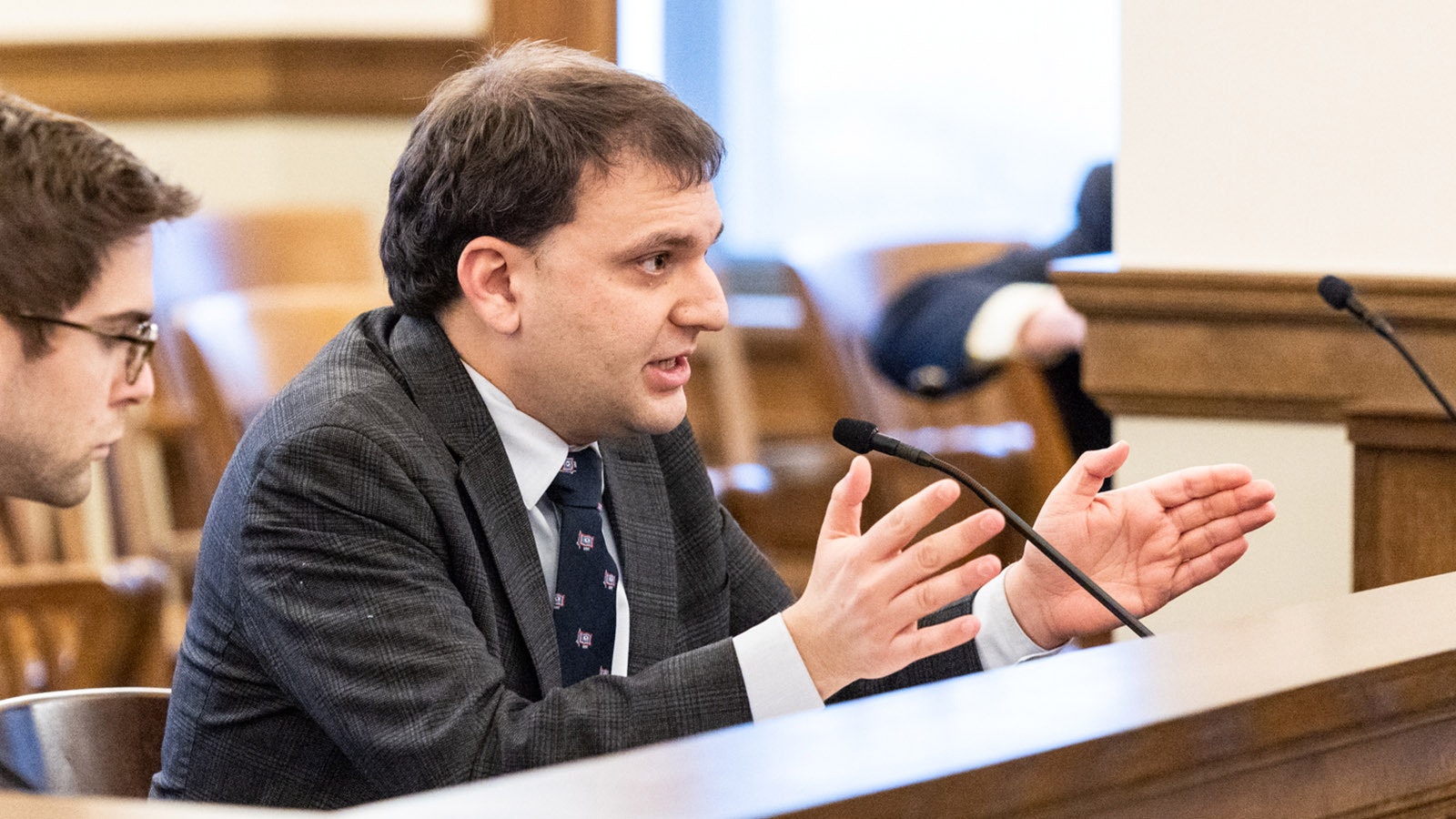Secretary of State Chuck Gray’s leading campaign promise was to address Wyoming’s election integrity in multiple ways, including eliminating crossover voting.
His last chance to make good on that ended Thursday when the final bill left in the 2023 state legislative session that would have nixed crossover voting was voted down Thursday by the Senate Corporations, Elections and Political Subdivisions Committee.
Crossover voting is the process of people registering to vote with a different party to influence the results of their primary election, which has become a major election complaint from conservatives over recent years.
Thursday’s rejection of House Bill 103 means Wyoming voters can continue to change party affiliation to crossover vote, including at the polls on primary election day.
As he has with every election-related bill considered by the state Legislature so far this session, Gray gave lawmakers an earful about the bill before the committee voted.
He said addressing crossover voting “has undermined the sanctity of Wyoming’s primary process,” and that it was the No. 1 issue he heard about from people during his campaign.
About The Bill
As originally written, HB 103 would have pushed back the cutoff to change party affiliation to after the filing period opens for candidates running for office on May 15, or 96 days before the primary election. It also would have locked in party affiliations until the day after the primary election and within 14 days of the general election.
State Sen. Brian Boner, R-Douglas, proposed an amendment that moved the cutoff to one day before the period early voting begins 45 days before the primary election. There is separate legislation being considered that would extend that further to 28 days.
“It was clear that (HB 103) wasn’t going to pass through committee as written, so that was an attempt to make a shorter period and try to find another vote,” Boner told Cowboy State Daily.
The committee still voted 3-1 against HB 103 with Sens. Cale Case, R-Lander; Eric Barlow, R-Gillette; and Charles Scott, R-Casper, against the bill; while Boner was the lone supporting vote.
New And Old Voters
Scott said he was concerned the bill would prevent new voters from being able to register their party affiliation after the bill’s deadline, mentioning how he has many oil field workers in his district who move to Wyoming from another state.
In Wyoming, most primary races are partisan, meaning many races are decided in the primary.
Rep. Jeremy Haroldson, R-Wheatland, who sponsored House Bill 103, said it would not apply to people who had not recently voted. He also said it would not infringe on the The National Voter Registration Act of 1993, which sets certain voter registration requirements with respect to elections for federal office.
“What that would’ve done is just eliminated the people who have been actively voting for a certain party for a long time, but then decided to change,” Haroldson told Cowboy State Daily.
The 2022 U.S. House race between U.S. Rep. Harriet Hageman and former congresswoman Liz Cheney was one of the strongest examples of crossover voting in Wyoming, with many Democrats and Independents openly saying they would crossover so they could vote for Cheney.
“I personally know three people who laughingly said to me they were Republican for a day,” said Kemmerer resident Laura Pearson.
Case also said he was concerned that HB 103 would prevent voters from unregistering from their party affiliation after the new deadline.
“Wouldn’t the simplest way of doing that to not vote in the primary?” Boner questioned.

Power Of Choice
In Wyoming, where Republicans hold an overwhelming majority, most elections are determined by the result of the primary election. Gray and others testifying for the committee Thursday said crossover voting has diluted their Republican primaries.
“Fixing this issue allows members of each party to select a member that represents that party,” Gray said.
A handful of other states have earlier deadlines than Wyoming to change party affiliation like Delaware, New York and Kentucky.
Haroldson’s bill as originally written would have prevented voters from choosing what party they want to register with and participate in the primary based on what candidates are running.
Mary Lankford, a representative for the Wyoming County Clerks Association, said about 39% voters nationally are unaffiliated or Independent, but during the last elections in wyoming that number was 14%.
Cheyenne resident Denise Parrish, said she’s an unaffiliated voter and likes having power to decide whether she will vote in a primary and if so, in which party’s.
“Not being able to have any say for who represents me as a Wyoming citizen is a difficult choice,” Parrish said.

A ‘No-Brainer’
Hot Springs County Republican Party Committeewoman Cheryl Aguiar urged lawmakers to vote for HB 103.
“This bill should be a no-brainer for this particular committee,” she said. “It’s a top issue for all voting constituents. This bill would restrict, not stop crossover voting.”
The Senate Corporations Committee also killed an identical crossover voting bill last week brought by Sen. Bo Biteman, R-Ranchester with a 3-2 vote.
Rep. Dan Zwonitzer, R-Cheyenne, introduced a more lenient bill, giving voters up to 14 days to change their party affiliation before a primary.
It also would allow unaffiliated and voters from minor parties to change their affiliation on primary day. That bill passed through a committee but was not considered on the House floor by deadline.





